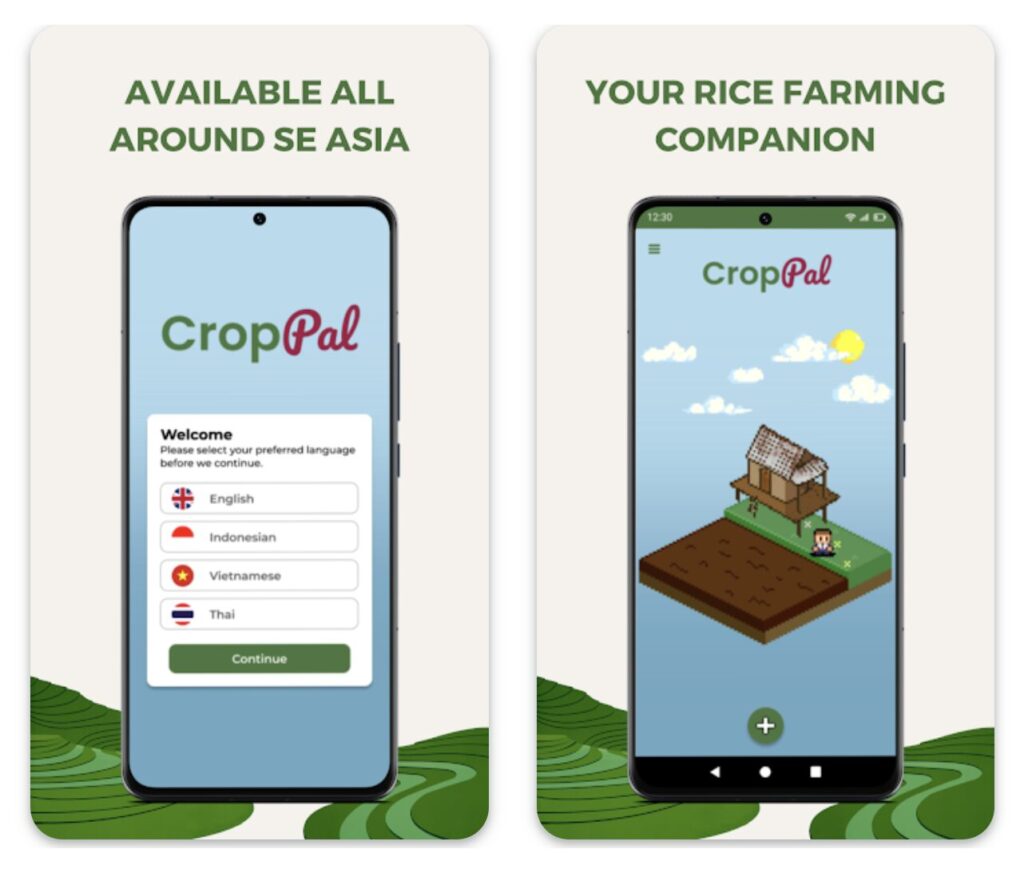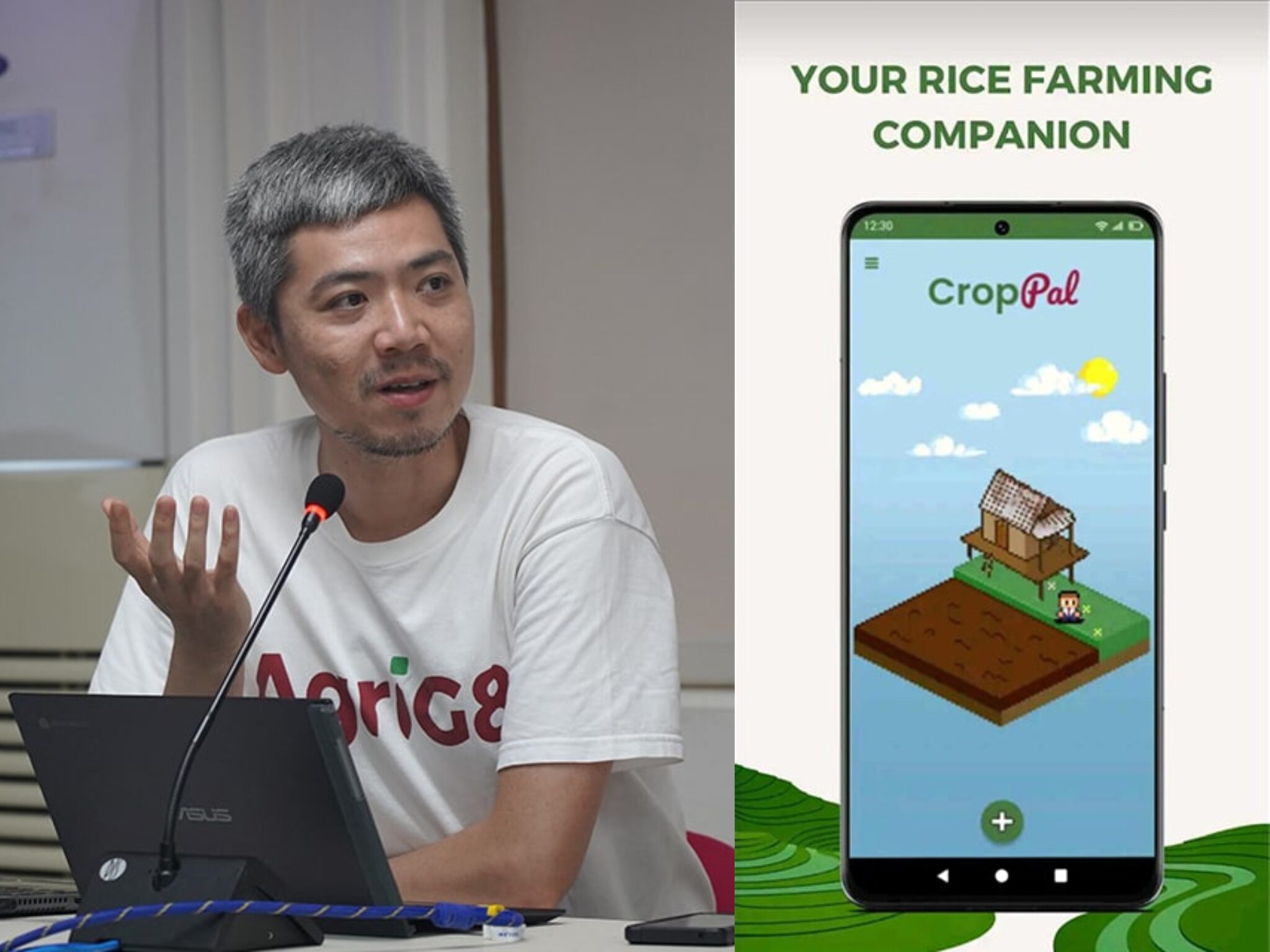AgriG8 Bags Investment to Decarbonise Rice Production in Asia with Gamified Platform
4 Mins Read
Agri-fintech platform AgriG8 has received financing from Better Bite Ventures and The Trendlines Group to help rice farmers in Asia reduce methane emissions by up to 55%.
Singaporean VC firm Better Bite Ventures and Israel’s The Trendlines Group have invested an undisclosed sum in AgriG8, a startup that supports Asian rice farmers in decarbonising their production methods.
Some estimates suggest rice’s greenhouse gas emissions are nearly on par with the global aviation industry (around 2% of the global total). It also accounts for 10% of anthropogenic methane emissions, which is a shorter-lived, yet much more potent gas.
So, reducing the climate footprint of rice is essential for governments and food companies in Asia to meet their net-zero targets. It’s because more than 90% of the world’s rice, meanwhile, is grown in Asia, but increasing temperatures could shrink yields of the crop by 40% by the end of the century.
In China, extreme rainfall has reduced rice yields over the last 20 years. And in Vietnam, where rice generates more emissions than the entire transportation sector, almost 250,000 acres of land in the Mekong Delta – its rice bowl – is being taken out of production, partly due to climate change.
“Decarbonising rice production is one of the focus areas for Better Bite’s investments,” said Michal Klar, founding partner at Better Bite Ventures. “Rice is one of the top sources of food and agricultural emissions in Asia-Pacific. We believe AgriG8 will help to accelerate deployment of methane-reducing farming practices, using their unique set of tech and finance tools.”
A gamified platform to incentive farmers

Founded in 2021 by David Chen and Joshua Tan, AgriG8 works with “local farmer aggregators such as cooperatives and NGOs” to help farmers reduce emissions. It has built a gamified digital platform, CropPal, to receive data from producers, as well as finance and incentivise methane-cutting agricultural practices.
“[The] CropPal platform consists of three components: the farmer-facing app, a dashboard for lenders and farm managers, and a background validation framework backed by machine learning,” Chen, who is the CEO of AgriG8, told Green Queen. “The app is deliberately gamified to reduce onboarding friction and to cater to a wider audience including farmers’ family members.”
Gamifying the design offers a “fun and easy onboarding experience”, he explained. “Farmers could report their seeding approach, water management and nutrient management via CropPal,” said Chen. “By submitting quality data, farmers unlock real-world rewards like loan rebates. For instance, optimising water usage and verifying it through CropPal can directly translate into financial savings.”
“We are thrilled to welcome Better Bite as our latest investor. Better Bite’s focus on decarbonising food and agriculture in Asia-Pacific is aligned with our mission. This investment will fuel our regional pilots of an inclusive financing solution that encourages sustainable practices among rice farmers and improves their livelihoods.”
Asked what caught Better Bite’s eye, Klar said: “David Chen has deep knowledge about the rice ecosystem in the region, with over 15 years of hands-on experience across the rice value chain. Supporting rice farmers in Southeast Asia to introduce better practices and offer better livelihoods has been his life’s work.”
Rice production is one of the five focus areas of Better Bite’s latest round of its First Bite funding scheme for food startups targeting climate solutions. “What we can do is provide that very first catalytic capital to amazing founders, who will go on and raise more funding to build impactful, transformative companies,” Klar told Green Queen in February.
How Asian rice farmers can reduce methane

One of the proven practices being advocated by AgriG8 is alternate wetting and drying (AWD). The water management system entails farmers going through several wet and dry cycles, rather than keeping the paddy flooded the whole time.
Farmers dig a measuring pipe in a corner and allow the water level to drop to 15cm below the soil’s surface, a level at which the roots are still submerged. The field is then flooded again at around 5cm level, and this cycle is repeated several times during the vegetative state of rice production.
Paddies can create ideal conditions for methane-producing bacteria, but drying the field at regular intervals can suppress their activity and significantly lower emissions, while also saving water. Most importantly for farmers, AWD maintains yields, so they don’t need to be worried about productivity.
This practice, combined with other solutions, can lead to a 55% reduction in methane emissions. AgriG8 has completed a pilot of its technology in central Thailand, with more trials to be held in Tra Vinh, Vietnam and Battambang, Cambodia during the next planting season.
“The first pilot successfully demonstrated farmer adoption of CropPal, with 80% of participants averaging 21 entries per season,” said Chen. “This data will enable AgriG8 to model farmer behaviour and inform the next pilot in September, which will test a digital plus commercial incentive approach to drive climate impact.”
AgriG8 is now also in discussions with several leading climate, food and agritech investors in the Asia-Pacific regions. Other startups innovating with future-friendly rice include Indian-American firm MittiLabs and France’s CarbonFarm, both of which use AI and satellite tech for carbon credits, though the efficacy of the voluntary carbon market has been called into question multiple times. Singapore-based Rize, meanwhile, buys seeds, fertilisers, and other inputs in bulk and sells them to farmers who implement AWD.
Disclaimer: Green Queen founder and editor-in-chief Sonalie Figueiras is a Venture Partner at Better Bite Ventures.



